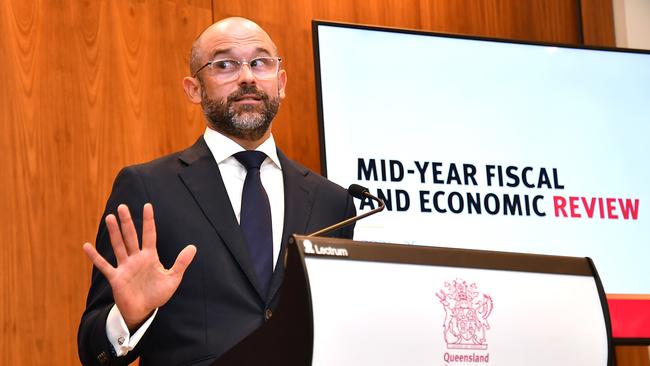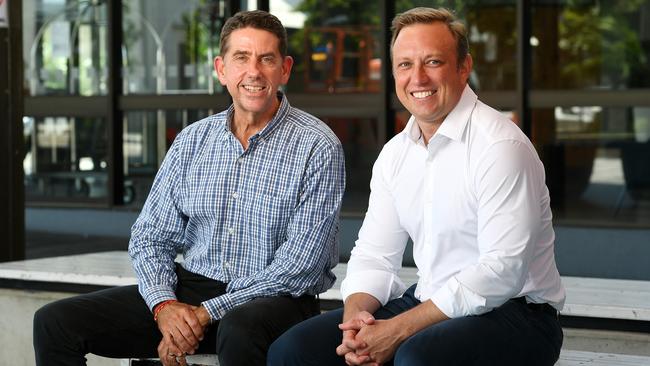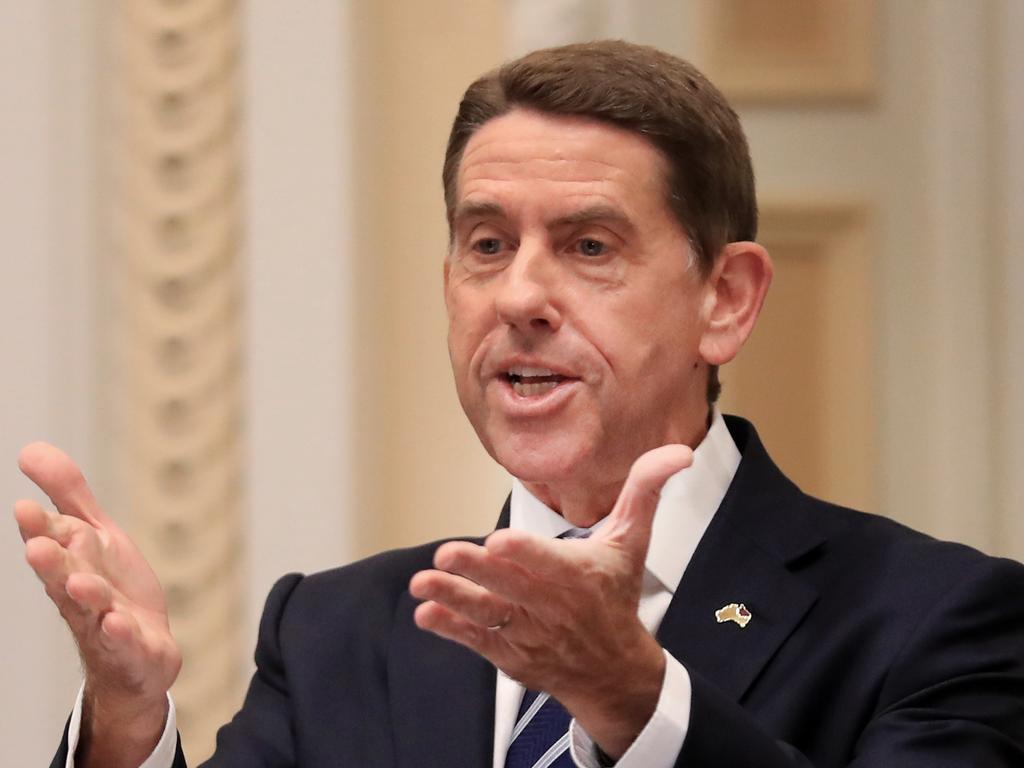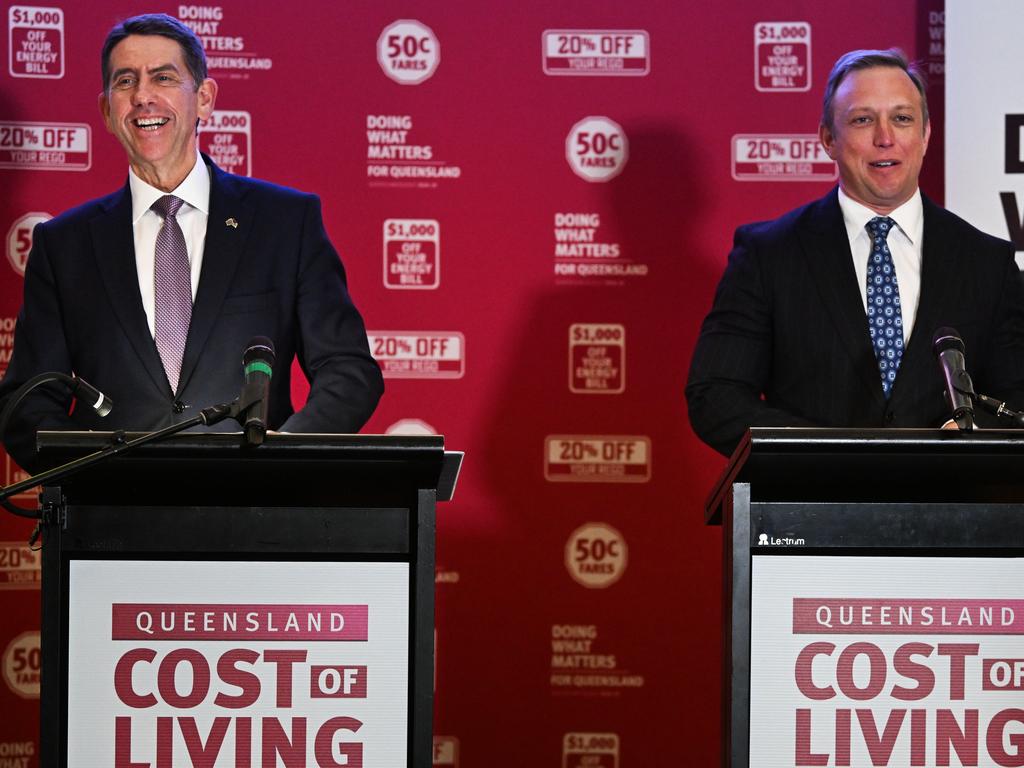
It began to turn really pear-shaped when Queensland lost the top credit rating in 2009. Labor’s Anna Bligh was the premier then, but the real damage had been done by the previous Labor premier Peter Beattie. Queensland was the first of the states to lose its AAA rating.
The truth is successive Labor state have failed to adequately control government spending or restrict the accumulation of debt for more than two decades. The years the Coalition/LNP was in power were too few to make any difference.
The financial debacle is now coming to a head as the real state of the Queensland budget is finally revealed in the Mid-year Economic and Fiscal Review. Of course, no one would be surprised former Labor premier Steven Miles wasn’t on top of the state of the budget. Details were never his thing, although he was very keen on making ridiculous and expensive promises to voters – free school lunches anyone?
Public finances are slightly different to other states mainly because the state has retained a reasonable number of government-owned corporations. What this means is that net general government debt can be misleading because so much debt is parked in the public non-financial corporation sector. The accounting treatment of public sector superannuation is another quirk in the figures.
But leaving aside these complications, the bottom line of the budget position in Queensland is shocking. How the previous treasurer, Cameron Dick, could have signed off on a set of accounts that projected budget surpluses in 2026-27 and 2027-28 when the outcome, on the basis of known parameters, is over $9bn deficits in the two years respectively. In this financial year, the budget deficit is now forecast to be close to $7bn, up from just over half a billion dollars estimated in the 2024 budget. According to MYEFR, “the three projected deficits from 2025–26 onwards would each be the largest on record, surpassing the $5.7bn deficit recorded in 2019–20 at the onset of the Covid-19 pandemic. The deficits projected from 2024-25 to 2027-28 total $30.2bn.”

Recall here that there is no equivalent to the Charter of Budget Honesty or the Pre-election Fiscal Outlook in Queensland, devices that keep federal governments fiscally honest – up to a point. The fact is that all sorts of things were excluded or underestimated in Labor’s last budget, including the cost of the dubious 50c public transport fares. Similar underestimation was going on in respect of the capital costs of the projects the government has on its books.
The net result of this restatement of the figures is that non-financial public sector borrowing (government debt) goes from an estimate of $172bn in 2027-28 made in the last budget to $218bn. “The rapid acceleration of borrowing projected in MYFER sees Queensland move from having the lowest levels of NFPS borrowing per capita of the major states to the highest in just four years, surpassing Victoria in 2027–28.” (Mind you, I won’t be betting the house on government debt in Victoria not being significantly adjusted upwards in due course.)
The reality is that the budget position in Queensland is so dire it is hard to imagine the state being capable of hosting the Olympic Games in 2032. It was extremely foolhardy of the then premier Anastacia Palaszczuk to agree to do so, particularly given there were no other bidders.
She maintains that 70 per cent of the facilities required already exist – it’s just that there is no suitable main stadium or swimming centre. Perhaps David Crisafulli, the current Queensland premier, could ask Glasgow if that city could be interested in taking over.
In the meantime, his government will have to make some hard choices about repairing the budget. Coal royalties have played a significant role underpinning Queensland’s budget but the price of coal is now on the wane. He might want to start by ditching some projects, including the ill-conceived Borumba pumped-hydro project. There will also need to be very tight control on public sector expenses.
In any event, a credit rating downgrade is almost inevitable, the effect of which will be to increase the net interest payments required to service the government debt.
In short, it’s a fiscal horror movie. The kindest interpretation on what the previous Labor government got up to fiscally is incompetence; there are other descriptive nouns that could be used.







Once upon a time – OK, a very long time ago – public finances in Queensland were extremely well-managed. Public sector superannuation was fully funded, recurrent budget surpluses were the norm and there was limited government debt. The state’s credit rating was an unquestioned AAA.